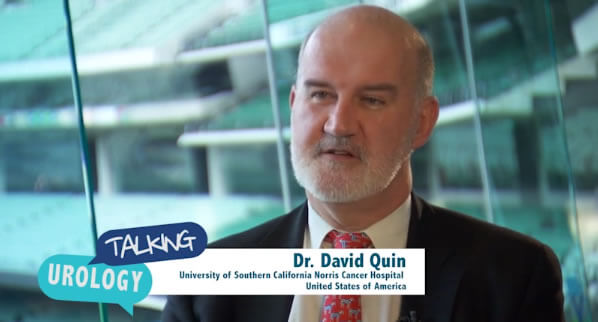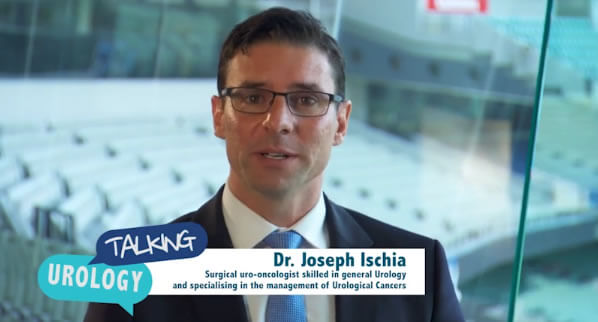USANZ 2017 – Dr Shomik Sengupta
Associate Professor Sengupta was Scientific Program Director of USANZ 2017. He is a practicing urologist and Director of Training and Research at Austin Health, Heidelberg.
Shomik highlights the key goals of management of muscle invasive bladder cancer in an Australian setting.
Talking Urology podcast transcript
USANZ 2017 Interviews – Shomik Sengupta
This is Talking Urology.
Joseph Ischia: I’m Talking with Shomik Sengupta who’s our local Australian expert on bladder cancer. He takes a very keen interest in and was in Maria’s talk today. So, Shomik, what were your take-home messages from Maria’s talk for Australian urologists?
Dr. Shomik Sengupta: Well, it was interesting to hear that what they’re experiencing in Europe is fairly similar to our experience here in that outcomes from bladder cancer haven’t really improved over time. She was talking about muscle invasive disease where surgery forms a mainstay of treatment. But the tips and tricks that she gave us are things that we’re aware of and we just need to do better. We need to select our patients well, we need to give them systemic therapy because multi-modal treatment improves outcome, and chemotherapy is probably best delivered in the neoadjuvant setting and they are recommending enrolling every patient for neoadjuvant treatment and I think there is some sense to that.
Joseph: Even the obstructed kidney?
Shomik: Well, you want unobstructed. I mean sometimes that’s a nephrostomy, sometimes that’s a stent placement. I think that is a different group of patients but perhaps they are the ones that might potentially benefit the most. And then you’ve got to do the surgery based on the surgical technical points out to make sure that the clearance is adequate, avoid positive margins, take lymph nodes. So, those were all the important messages. On the other hand, you’re trying to balance the quality of life effects so trying to do a competent reconstruction were possible, trying to do nerve sparing or vaginal sparing surgery to enable sexual function. So, I think there are lots of things that we can work on to incrementally improve bladder cancer outcomes and Maria’s talks given us some pointers to try and do that.
Joseph: Are you excited about PD-1 inhibitors?
Shomik: Look, I think PD-1 inhibitors are currently probably at a more advanced stage of disease but it certainly got some promise in the adjuvant setting where trials I guess are running and will be running. So, I think that part is an exciting future direction but probably not quite ready for clinical practice yet.
Joseph: Thanks very much, Shomik. It has been a pleasure.
Shomik: No worries. Thanks, Joe.










